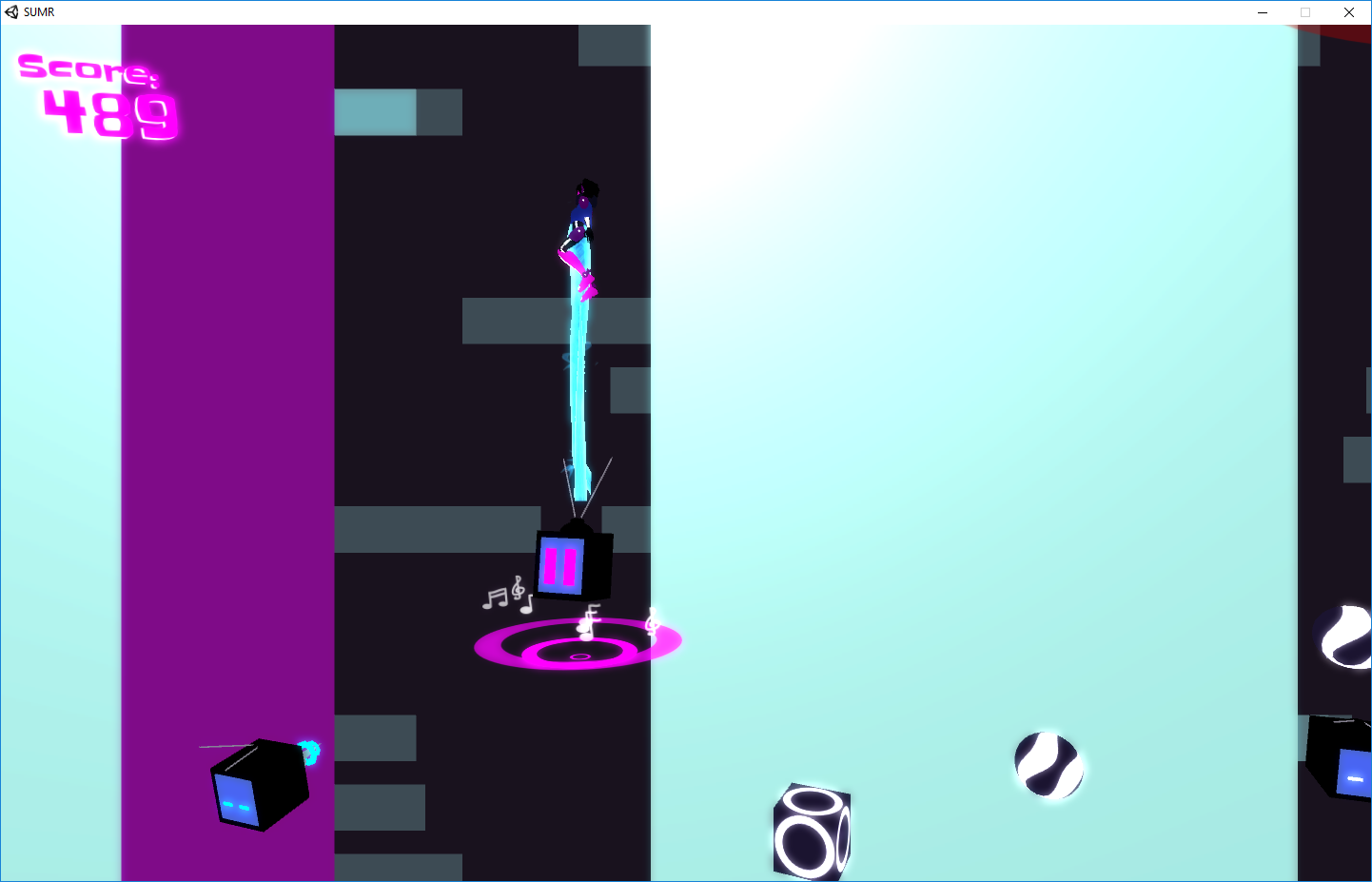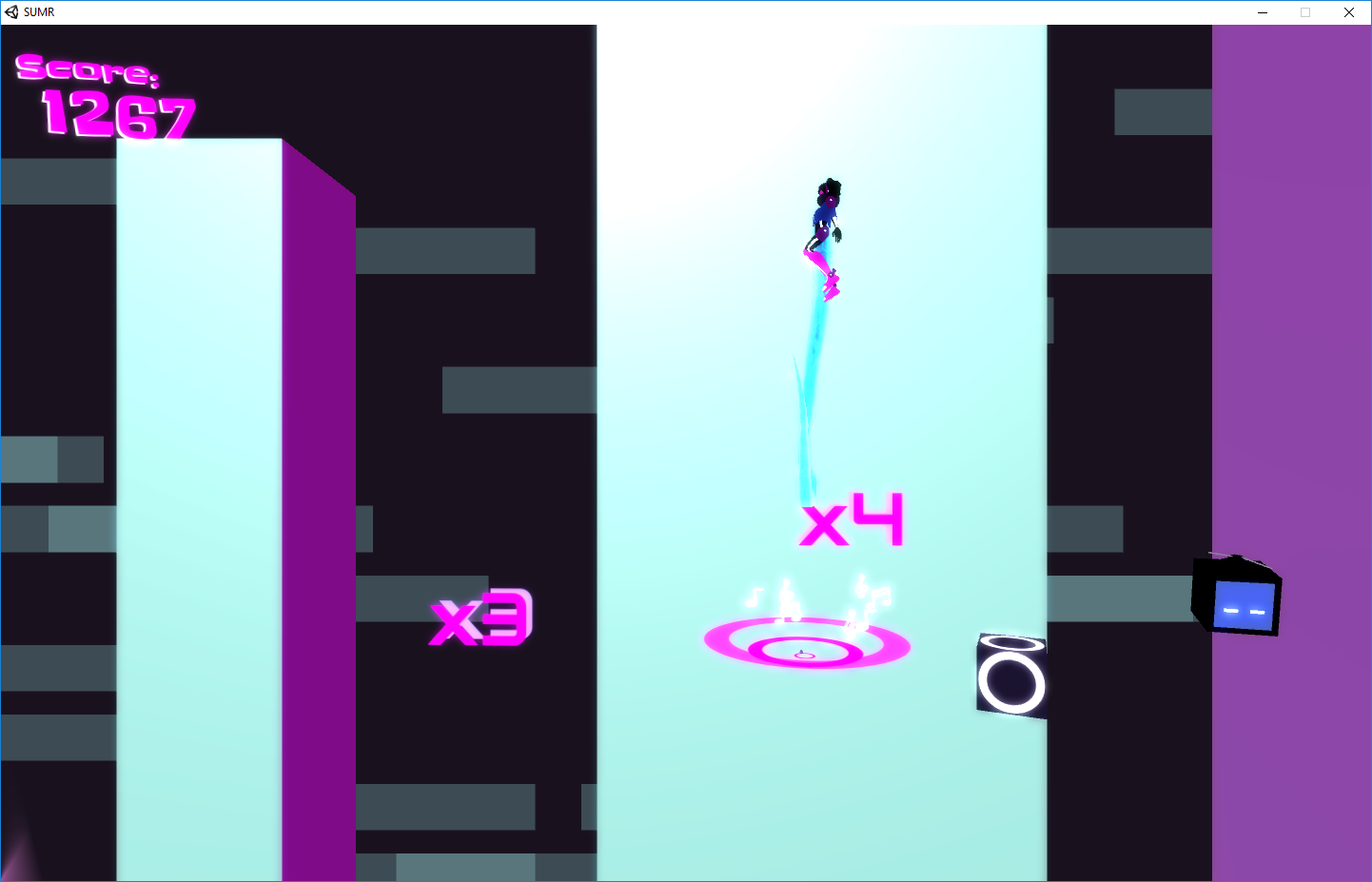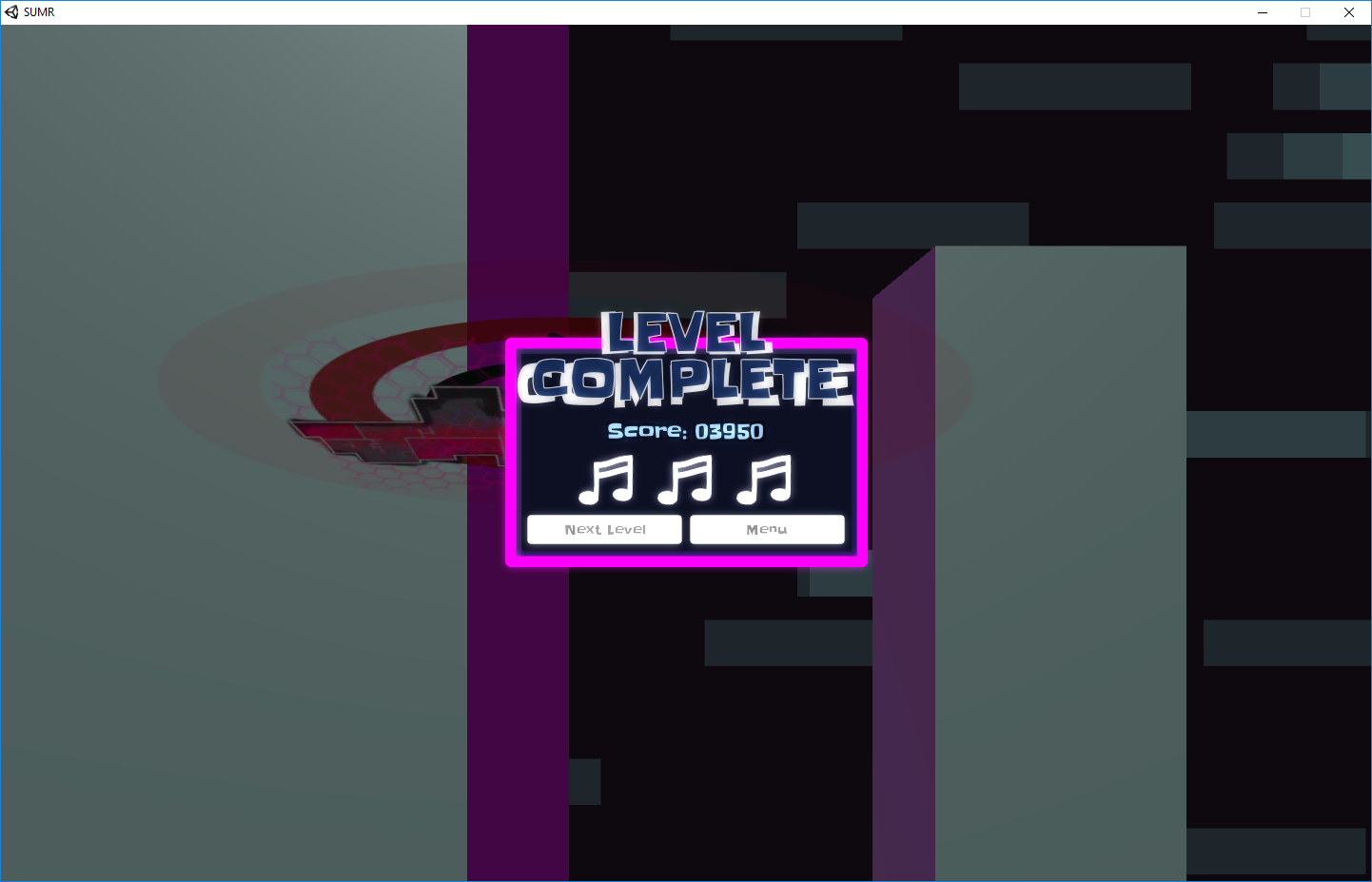ImagineCup Hackathon Game: Lyra
RIT did a small hackathon recently as a kind of a prelude to Microsoft’s much bigger hackathon ImagineCup. A few of my friends and I decided to take part to see what we could make together. The party consisted as me as a programmer, Jaben McCormack as programmer and sound designer, David Erbelding as programmer and VFX artist, and DJ Guscott as the lone artist.
RIT’s ImagineCup Hackathon lasts 48-hour and is pretty free form. Any project idea is allowed. At first we didn’t have any idea what we were going to make. After a few hours of brainstorming, we decided to make a super simple platformer that would allow us to polish it to a shine. Our aim was to have something worthy of showing off to the world.
I think we accomplished it. To me, it proved how big a difference small details can make. All the subtle details add up. So let me list a few that I can remember.
- The player’s jump is dictated by a bezier curve rather than physics
- All the enemies recoil at being hit
- Every interaction is full of ‘juice’
- Enemies shoot out notes and a ring when hit
- The combo number jolts out
- The score counter bulges when increased
- Nothing is really default or bland
- The font is unique and fitting
- The background is populated. Active but not distracting
- All the colors fit together. The neat lighting of the background pillars whas a total accident made by combining green and purple lights from different angles.
- All UI aspects of a completed game are present and full. Menu, level complete, game over.
- Nice backgrond music
- Sound effects at every impact and event
- Controller support
What I noticed from a lot of previous projects as well as projects of my peers is that they often overlook or skip things that when missing jar the player who may not notice it’s missing until its mentioned. These are usually bigger things like a menu being ugly or there not being any sound. To an eager developer, these things are trivial and put on the backlog thinking “they’ll get done eventually, this other thing is more important.” Usually that other thing is the core mechanics, and that is understandable. Core mechanics are undoubtedly the most important thing to a game, but it’s vital as a developer to know how to implement it quickly so that it may be iterated upon while the surrounding features can be built. This requires knowing when your core mechanic is in a state that can adequately convey itself to testers, which can be just as difficult as implementing it. Sometimes though, the “other thing” is something completely unrelated, and that’s when watching a project is the most frustrating, because the developer feels that something like the level editor or the character creation absolutely must be completed before they even touch the gameplay.
The game is available for download and play here.




